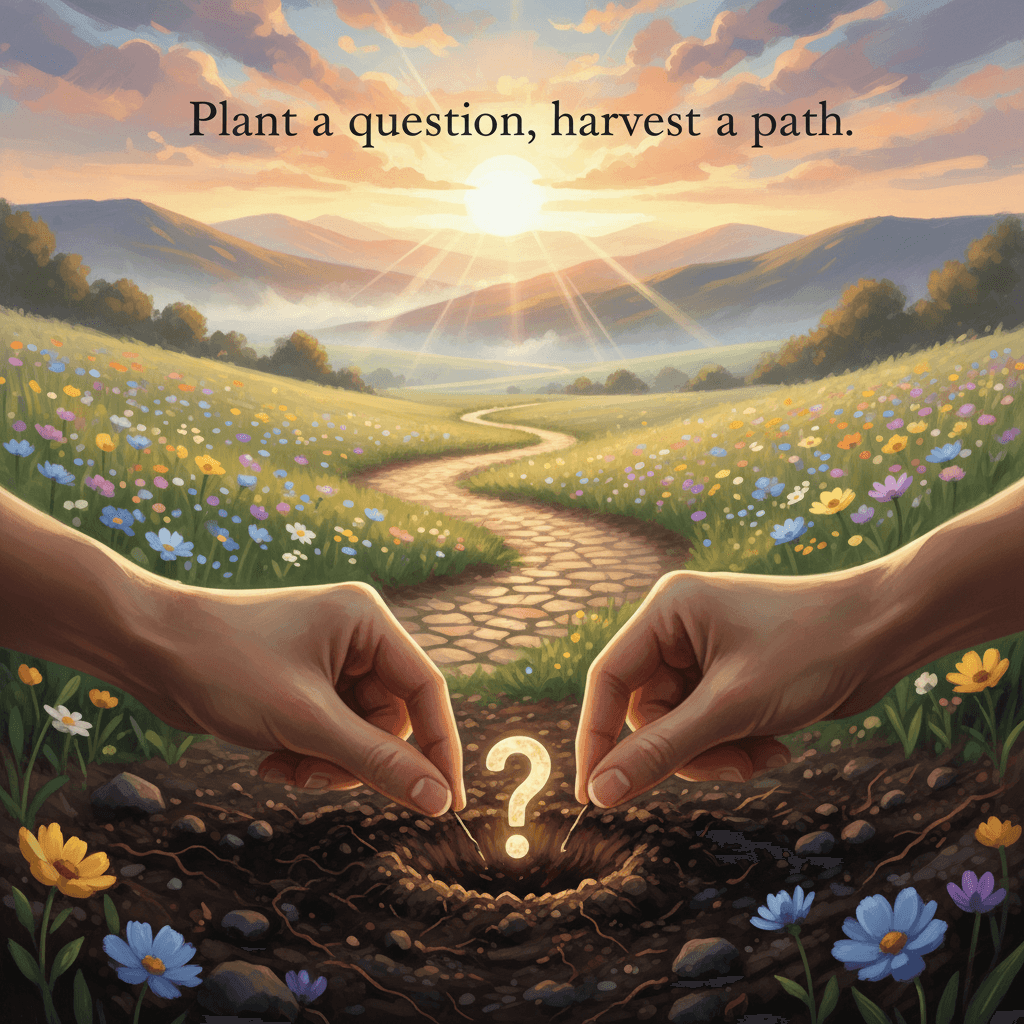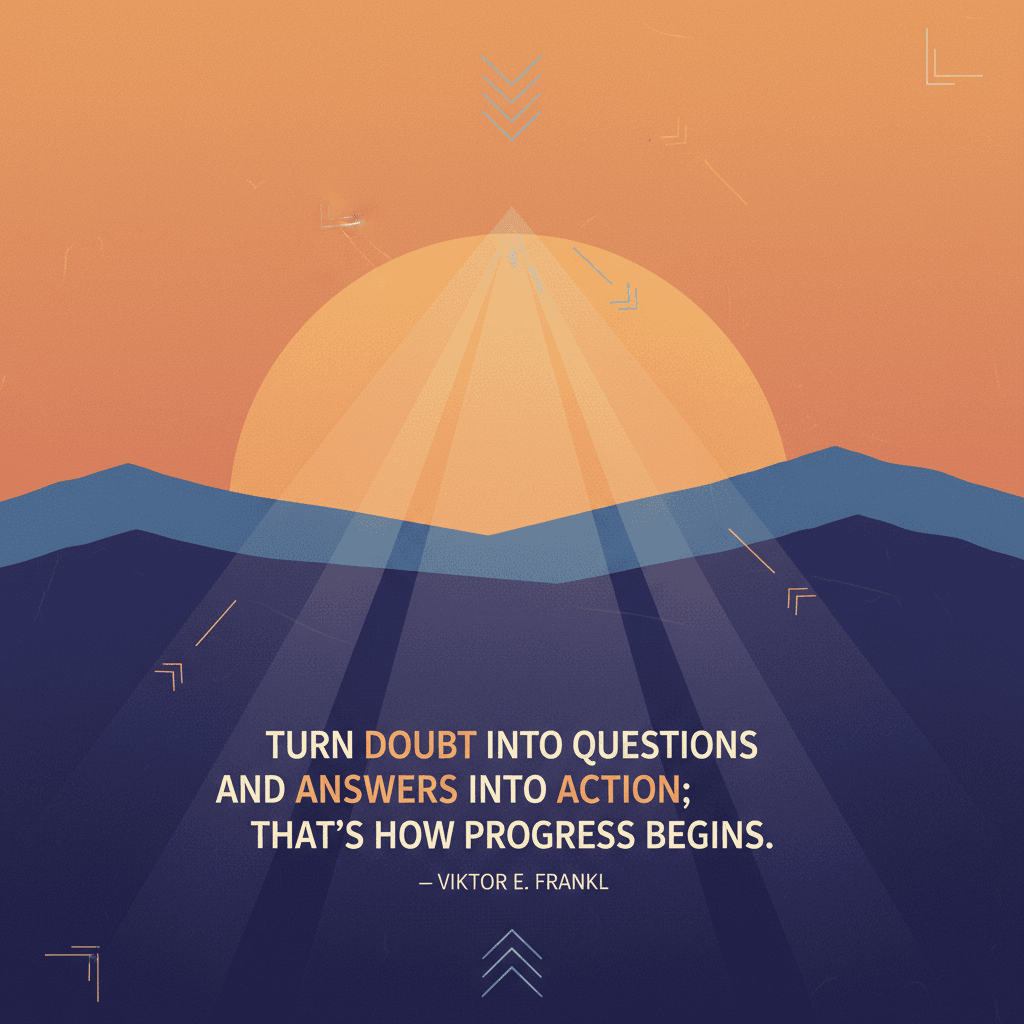#Inquiry
Quotes tagged #Inquiry
Quotes: 11

Gentle Questions That Dissolve Doubt Into Action
The emphasis on gentleness suggests that the manner of asking matters as much as the asking itself. A harsh question can trigger defensiveness in others or self-judgment within us, reinforcing the very doubt we’re trying to overcome. By contrast, a soft, respectful inquiry invites information to surface without raising barriers. This aligns with Confucian ethics in the Analects (c. 5th century BC), where learning is rooted in humility and social harmony. A question posed to understand rather than to corner someone preserves relationships while still revealing truth, turning dialogue into a pathway out of uncertainty. [...]
Created on: 1/12/2026

How Questions Become Pathways to Meaning
Creative breakthroughs often begin with questions that feel slightly strange: “What if I invert the usual structure?” or “What would happen if I remove the obvious solution?” Artists and writers frequently describe their process as following a thread rather than executing a plan. Dickinson, a poet known for compressed insight, implies that the question is that thread. This is why the harvest is a path rather than a product. A question can lead to a new style, a fresh subject, or an unforeseen collaboration—results that look less like a trophy and more like a widened horizon. [...]
Created on: 1/8/2026

Turning Questions into Tools for Enduring Answers
Gibran’s second clause—“craft answers that endure”—shifts from collecting tools to building with them. Enduring answers are not merely correct for a moment; they remain useful across changing contexts. This is why many philosophical and scientific advances read like revisions rather than proclamations: Darwin’s “On the Origin of Species” (1859) endures not because it closed inquiry, but because it offered a framework that could generate further tests and refinements. In that light, an answer is crafted when it is supported by reasons, bounded by clear conditions, and expressed with enough humility to survive new information. The aim is less a final verdict than a structure sturdy enough to keep standing as the weather changes. [...]
Created on: 12/25/2025

Turning Personal Struggles Into Shared Wisdom
As answers are shared, they invite others to reveal their own questions and struggles, and so a community of mutual learning begins to form. Rather than isolating people, suffering becomes a point of connection, reducing shame and fostering empathy. This dynamic resembles the confessional conversations in Dostoevsky’s works, where characters’ candid disclosures spark moral and spiritual reflection in others. In the same way, your willingness to transform struggle into questions and then into shared answers helps cultivate spaces where individuals no longer feel alone, but instead recognize themselves within a larger human story. [...]
Created on: 11/20/2025

From Doubt to Action: Frankl’s Progress Principle
Finally, Frankl reminds us that action without meaning can be efficient but empty. Logotherapy grounds movement in responsibility—to a task, a person, or a principle—so that progress improves lives, not merely metrics. Practically, a simple cadence sustains the cycle: each week, list doubts; translate them into testable questions; draft one-page hypotheses; run a 24-hour, low-cost experiment; review results and revise. By closing the loop—doubt to question, answer to action—we honor Frankl’s insight and ensure that progress is not an accident but a habit shaped by purpose. [...]
Created on: 11/2/2025

The Transformative Power of Asking the Right Questions
This principle reaches far back into the annals of philosophy. Socrates, as depicted in Plato's *Meno* (c. 380 BC), famously employed probing questions to guide others toward self-discovery. His dialectical method reflects Jung’s conviction: the correct question does not just seek information—it illuminates pathways to understanding that were previously hidden. [...]
Created on: 6/12/2025

A Prudent Question Is One-Half of Wisdom - Francis Bacon
The word 'prudent' suggests a careful and cautious approach. The quote underlines that wisdom involves not just asking any question, but asking a sensible and insightful one that serves to deepen understanding. [...]
Created on: 10/31/2024